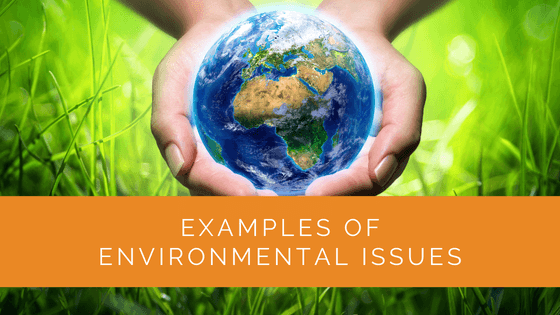It’s now beyond reasonable doubt that human activities contribute to global warming. But we shouldn’t limit our environmental concerns to just this.
Each day, people in every corner of the globe are met with a fresh set of formidable challenges the environment poses. Although some of these changes are minor and only impact specific ecosystems, others have far-reaching consequences, altering our knowledge.
In this article, we talk about some urgent environmental issues and their collective and personal solutions.
Contents
Key Takeaways
- Beyond global warming, numerous pressing environmental concerns exist, including pollution (air, water, and soil), natural resource depletion, waste management problems, overpopulation, depletion of the ozone layer, melting polar ice caps, and urban sprawl.
- Addressing these environmental issues requires collective action and global cooperation. People, businesses, and governments must work together to reduce pollution, conserve natural resources, manage waste responsibly, and mitigate the effects of urban sprawl.
- Everyone can contribute to environmental protection by adopting cleaner living practices, such as mindful consumption, composting, reusable items, and supporting local and sustainable products. Individual efforts, when multiplied, can have a significant positive impact on the environment.
Looking Into Major Environmental Problems
The environmental disaster is about to hit our planet hard. The state of the environment today leaves us open to catastrophes both in the present and the future.
We have reached a point of global emergency as environmental issues rapidly multiply. Unless we handle these concerns cautiously and seriously, we will gradually head toward disaster.
Pollution
Soil, water, and air pollution are the three most prevalent forms of pollution, and they all have far-reaching consequences for our ecosystem. Noise, thermal, optical, and radioactive pollution are other forms of contamination.
There is a reciprocal relationship and influence among all these forms of pollution. As a result, we need to work on a collective solution to solve them. The air, water, and soil are all severely impacted by pollution, and they will take millions of years to recover.
Soil pollution is caused primarily by toxic industrial waste that prevents soil from absorbing essential nutrients—oil spills, urban runoff, and acid rain cause water pollution. Air pollution is produced by different gases and pollutants generated by factories and industries, as well as fossil fuel burning.
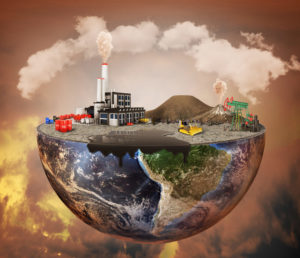
Lack of natural resources
Natural resource depletion is a severe environmental issue at present. To meet our demands, humankind would need over 1.5 Earths’ natural resources!
This value will rise much more as Asian nations undergo rapid industrialization. Various other environmental problems, including industrialization, population expansion, and air pollution, are brought on by the increased usage of natural resources.
Natural resource scarcity will eventually cause an energy catastrophe. Many natural resources release chemicals that cause climate change. Consumption of fossil fuels causes the release of greenhouse gases that are mostly to blame for climate change and global warming.
People are working on switching to renewable energy sources, including solar, geothermal, and wind energy, on a global scale. As a result, the price of setting up the infrastructure and keeping these sources operational has decreased recently.
Waste management
A global waste disposal dilemma is being brought on by resource overuse and the production of plastics. Developed nations like the United States have a reputation for manufacturing large amounts of rubbish and discarding it into the oceans and in underdeveloped or developing countries.
The disposal of nuclear waste also has serious health risks. Human health is threatened by fast food, supply chain packing, inexpensive electronics, and plastic as well.
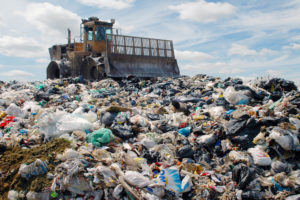
Overpopulation
The world’s population is unsustainable due to a lack of water, fuel, and food resources. Among less developed and emerging nations, the growing population is placing further pressure on already limited resources.
Moreover, chemical fertilizers, insecticides, and pesticides used in intensive agriculture to grow food harm the environment.
Depletion of the ozone layer
We are shielded from the sun’s damaging rays by an unseen layer of protection called the ozone layer surrounding the globe. Bromide and chlorine, both present in chlorofluorocarbons (CFCs), are responsible for pollution that has destroyed this atmosphere’s vital layer.
Once these dangerous chemicals are in the high atmosphere, they damage the ozone layer, with the Antarctic region seeing the most significant hole. Many businesses and consumer goods are prohibited from using CFCs.
This ozone layer is essential because it keeps damaging UV rays from reaching the planet.
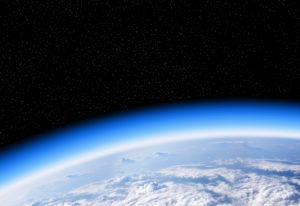
Polar ice caps
The melting of polar ice is a hotly debated topic. According to NASA research, the quantity of glaciers in Antarctica is growing, but this growth is just a third of the amount lost in the Arctic.
There is sufficient data to conclude that sea levels are increasing, with the melting of the Arctic ice sheets playing a significant role. In the long run, melting the polar ice may result in substantial ecological changes, severe floods, and water pollution affecting drinking water.
Urban sprawl
Urban sprawl is the term used to describe how a city spreads out across an increasing amount of rural land. This results from people moving from high-density urban regions to low-density rural areas.
Land degradation, more traffic, environmental problems, and health problems are all consequences of urban expansion. Instead of replacing the natural environment made up of vegetation and animals, the ever-increasing need for land displaces it.
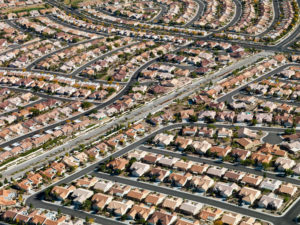
Global Efforts
Collective and global efforts are the most urgent and effective ways to fight this battle against environmental changes. These are the two levels at which we are fighting this catastrophe:
Collective change
Our globe is changing more quickly than anybody anticipated. Because of a changing climate, freshwater resources are depleting, agricultural outputs are declining, our forests are blazing, and the oceans are becoming more acidic.
Our manner of life evolves as the natural environment surrounding us does. The value of coastal homes declines as insurance costs rise; the drought affects feed availability for farmers’ livestock and irrigation for their crops; increased dust and pollen in the wind agitates asthma and allergy symptoms in children and adults.
But we have to have faith that we can defeat this grave threat and create a safer, greener, and even more resilient future for both individuals and the environment. We must reconsider how we create and use fuel, food, and water. Together, we must save the forests and assist people in becoming more adaptable to the changing environment.
Everyone must take action to achieve this vision, and we are already making significant progress. People are calling for change with their united voices. Businesses invest in sustainable energy, boost local economies, and create employment.
To make them more climatically adaptable, communities are remodeling their highways, structures, airports, and trains.
The Paris Agreement
Countries all over the planet are dedicated to following the historic Paris Agreement, a United Nations worldwide strategy to slow down climate change. Delegates to the UNFCCC signed an agreement in Paris to battle the changing climate and quicken and strengthen the investments and actions required for a better future.
For the first time, the Paris Agreement has united all countries in the fight against climate change and adaptation to its impacts, with increased funding for helping developing nations. As a result, it plots a new course for the campaign to combat global warming.
Here are five key takeaways from the agreement:
- First global climate agreement
- Limit temperature increase to “far below” 2 C
- Aiding developing countries
- Setting greenhouse gas emission reduction goals
- Carbon-free by 2050
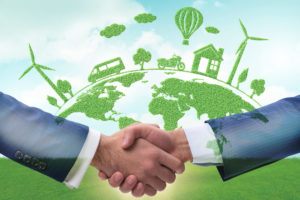
Individual Efforts
The sad truth is humans have not been the best custodians of the earth. We must all utilize cleaner living practices to safeguard the environment and conserve the earth for the next generation.
We are all consumers of products, whether gasoline, food, apparel, motor vehicles, household goods, toys, water, technology, trinkets, or other items. The solution isn’t to stop consuming things but to begin paying attention to how our actions and purchases impact the environment.
The great news is that being more environmentally conscious is frequently not too difficult, costly, or bothersome. Implementing a challenge with your family or colleagues might even be enjoyable.
Consider just how cleaner the world would be if everybody changed a handful of the following behaviors, even if tiny adjustments on a micro-scale may seem insignificant.
- Consume mindfully
- Compost
- Prefer reusable items to single-use ones
- Do more upcycling
- Do ethical recycling
- Purchase secondhand commodities
- Shop locally
- Use fewer chemicals
- Take the bus, bike, walk, or carpool
- Reduce water usage
- Make effective use of your buying power
- Make electricity cuts
Expert Insights From Our Solar Panel Installers About Environmental Issues
Pollution remains one of the most pressing environmental issues, with soil, water, and air pollution having far-reaching consequences on our ecosystem. Addressing these interconnected problems requires a comprehensive approach and collective action.
Environmental Specialist
Depletion of natural resources is accelerating due to industrialization and population growth. Switching to renewable energy sources like solar and wind is critical to reduce our reliance on fossil fuels and mitigate climate change.
Renewable Energy Consultant
Overpopulation and waste management are interlinked issues that put immense pressure on our planet’s resources. Implementing sustainable practices such as composting, recycling, and mindful consumption can significantly alleviate these pressures.
Sustainability Advocate
Wrapping Up
To put it bluntly, there won’t be a tomorrow to consider if humans keep plowing on in the same destructive manner. Even though there is nothing we can do to undo what is done, we can do plenty to prevent it from worsening.
You can make the world a better place for yourself and future generations by being more environmentally conscious and advocating for environmental protection in your community and among your loved ones.
There is still a chance that we can rescue the earth, but now more than ever, individual and collective efforts driven by a desire to do so are essential.
About the Author
Solar Panels Network USA stands at the forefront of solar energy solutions, driven by a team of seasoned solar engineers and energy consultants. With over decades of experience in delivering high-quality solar installations and maintenance, we are committed to promoting sustainable energy through customer-centric, tailored solutions. Our articles reflect this commitment, crafted collaboratively by experts to provide accurate, up-to-date insights into solar technology, ensuring our readers are well-informed and empowered in their solar energy decisions.

